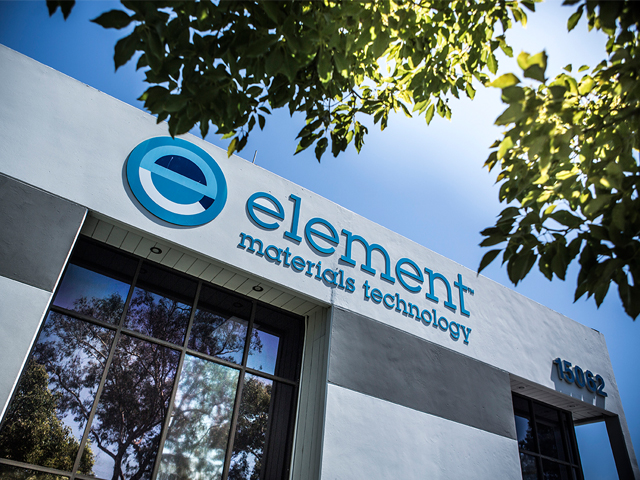Global material and product certification leader Element has upgraded its laboratory in Huntington Beach, California with a dedicated characterization facility for additive manufacturing powders.
The new testing equipment will allow for chemical composition analysis, powder sieve analysis, particle size distribution, flow rate, apparent density, tap density, and gas pycnometry – a method of measuring an irregularly shaped solid object’s volume. A team of over 250 multidisciplinary experts currently use the Nadcap-accredited laboratory for everything from standard high-volume testing to complex materials analysis and in-depth failure investigations. The results from these procedures benefit a whole host of industries including aerospace, military, nuclear, and medical manufacturing.

The importance of powder characterization
Powder characterization is an integral part of industrial additive manufacturing. Without it, there is no indication as to whether a powder is authentic, pure, uniform or ready for processing. Once a part has been printed, the new facility is also able to perform mechanical, dynamic, chemical and metallurgical tests on the prototypes.
Rick Sluiters, EVP Aerospace at Element, stated: “3D printing is well beyond an emerging market now, and is an increasingly important space for us to be working and investing in. Powder characterization has applications in multiple industries, including aerospace and medical devices, which are key sectors for Element. Broadening our offering ensures that we are at the forefront of technical advancement, and we can provide a full suite of services to both new and existing customers.”

The bigger picture on AM certification
Certification is crucial in avoiding failure during service for industries such as aerospace and medical, but there are long-term implications for additive manufacturing as a whole. A present issue in additive manufacturing is the implementation of industrialization, covered in the 2nd TÜV SÜD Additive Manufacturing Conference.
A more standardized approach to the testing, qualification, and certification of products and processes in industrial additive manufacturing can aid the industry in catching up to the popularity of classical manufacturing. Due to the infancy of industrial additive manufacturing, standards for metal powders in additive manufacturing were only just published in 2019. Investment in testing facilities such as Element’s Huntington Beach laboratory can help drive the industrialization process if other corporations follow suit.
The nominations for the 2020 3D Printing Industry Awards are now open. Who do you think should make the shortlists for this year’s show? Have your say now.
Subscribe to the 3D Printing Industry newsletter for the latest news in additive manufacturing. You can also stay connected by following us on Twitter and liking us on Facebook.
Looking for a career in additive manufacturing? Visit 3D Printing Jobs for a selection of roles in the industry.
Featured image shows Huntington Beach laboratory. Photo via Element.



